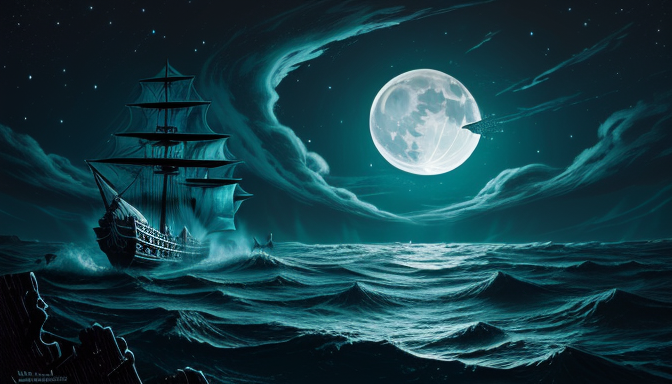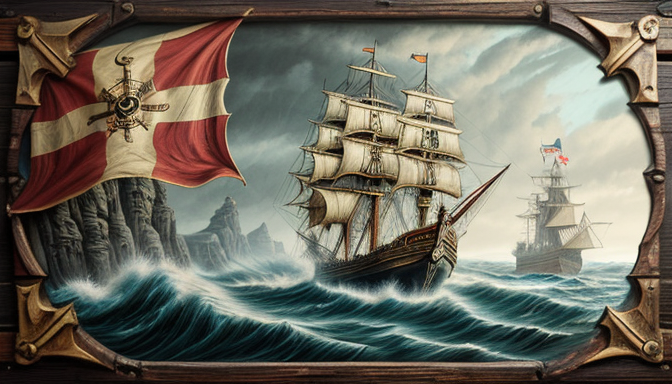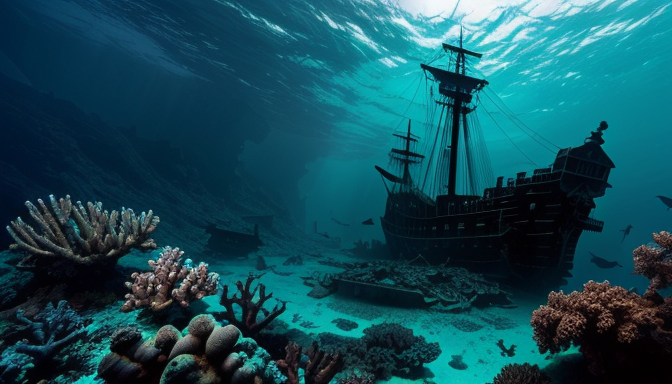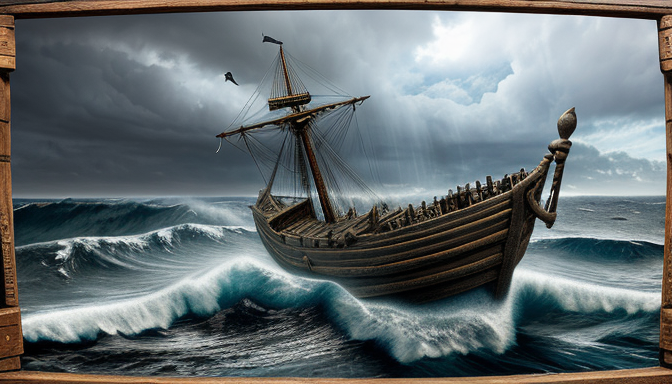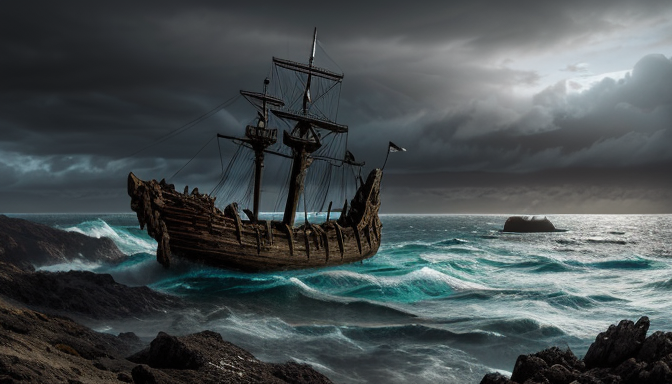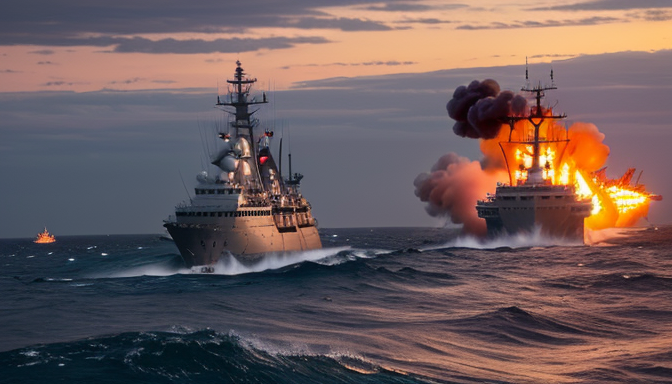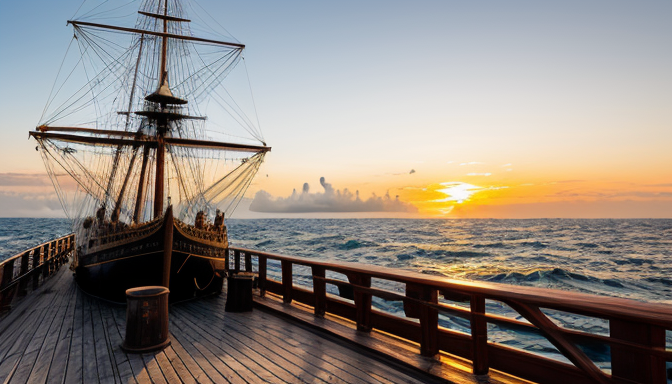The Mystique of the Ocean: Legends That Endure
The ocean has always been a source of mystery and wonder, captivating the hearts and minds of those who dare to explore its depths. From the ancient mariners who navigated by the stars to the modern adventurers who brave its unpredictable waters, the sea has inspired countless legends that continue to echo through time. Imagine yourself aboard a historic vessel, the salty breeze in your hair, as you sail through waters steeped in tales of heroic sea battles and legendary explorers. These stories are not merely fanciful tales; they reflect the courage and curiosity of humanity as we seek to understand the vast unknown.
Throughout history, the ocean has served as both a friend and a foe. It has been the backdrop for epic battles, where ships clashed in pursuit of glory and treasure. The likes of Captain Cook and Ferdinand Magellan have become household names, their adventures immortalized in books and films. But what about the myths that surround them? Tales of mermaids luring sailors to their doom or the Kraken lurking beneath the waves remind us of the ocean’s untamed nature. These legends not only entertain but also teach us about the human experience, reflecting our fears, dreams, and the eternal quest for discovery.
So, the next time you gaze out at the shimmering horizon, remember that beneath those waves lies a world of stories waiting to be told. The ocean’s myths are a testament to our enduring fascination with the sea, a reminder that even in our modern world, the allure of the unknown remains as powerful as ever.
Historical Origins of Ocean Legends
Ahoy, matey! The ocean has always been a canvas for the imagination, painting vivid tales that have sailed through history. From the ancient Greeks who whispered about Poseidon, the god of the sea, to the Norse legends of Kraken and mermaids, these stories reflect humanity’s deep-rooted relationship with the vast blue. Have you ever wondered how these legends came to be?
Many of these ocean legends were born from the experiences of ancient civilizations. Take the Greeks, for example. Their sailors, navigating treacherous waters, often attributed storms and strange sea creatures to the wrath of their gods. Similarly, the Polynesians crafted tales of mythical islands, guiding their way across the Pacific with stories that blended navigation and spirituality.
It’s fascinating to see how these legends were not just mere stories but also a reflection of cultural values. They taught lessons about bravery, respect for nature, and the unknown. For instance, the legend of the Flying Dutchman warns of the perils of greed and the consequences of defying the sea. This ship, doomed to sail forever, symbolizes the eternal struggle between man and nature.
As we dive deeper into the historical origins of these legends, we uncover a treasure trove of tales that shaped our understanding of the ocean. From epic sea battles to daring explorations, every story adds a layer to the mystique of the ocean, reminding us of its power and allure.
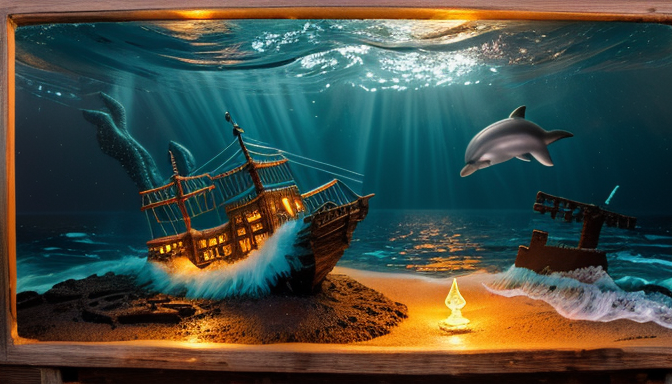
Modern Interpretations and Impact
The ocean has always been a source of mystery and inspiration, and today, its legends continue to captivate our imaginations. From the epic tales of ancient mariners to the modern cinematic portrayals of sea monsters, the ocean’s allure remains as potent as ever. Films like “Pirates of the Caribbean” and “Finding Nemo” have redefined our understanding of these myths, blending adventure with humor and emotion. These stories remind us of the heroic journeys and perilous battles fought on the high seas, echoing the experiences of famous explorers like Magellan and Cook.
Moreover, contemporary literature often revisits these oceanic themes, weaving in elements of fantasy and reality. Books such as “The Old Man and the Sea” by Hemingway not only reflect the struggle between man and nature but also delve into the deep psychological connections we share with the ocean. This literary exploration serves to reinforce our cultural values, portraying the sea as both a nurturer and a destroyer.
Art and music have also found their muse in the ocean’s depths. Artists like J.M.W. Turner captured the tumultuous beauty of sea storms, while composers like Debussy evoked the ocean’s ebb and flow through sound. These interpretations enrich our understanding of the ocean’s impact on human creativity and cultural identity. As we continue to explore these legends, it becomes clear that the ocean is not just a backdrop for stories; it is a living entity that shapes our narratives and inspires our dreams.
Frequently Asked Questions
- What are some common ocean legends?
Ocean legends are as vast as the sea itself! Some popular tales include the infamous Kraken, a giant sea monster that drags ships under, and the enchanting Mermaids, who lure sailors with their songs. Each story offers a glimpse into how cultures perceive the ocean’s mysteries.
- How do these legends reflect cultural values?
These legends often mirror the beliefs and fears of ancient civilizations. For instance, tales of sea monsters might represent the unknown dangers of the ocean, while stories of gods controlling the seas reveal a desire for understanding and respect for nature’s power.
- Why do modern interpretations of ocean legends matter?
Modern interpretations breathe new life into these ancient tales, making them relevant to today’s audiences. They influence literature, film, and art, showcasing how our fascination with the ocean continues to inspire creativity and shape societal views.
- Can ocean legends teach us anything today?
Absolutely! Ocean legends remind us of our connection to nature and the importance of preserving our seas. They encourage us to explore, respect, and protect the ocean, ensuring that future generations can enjoy its wonders.
